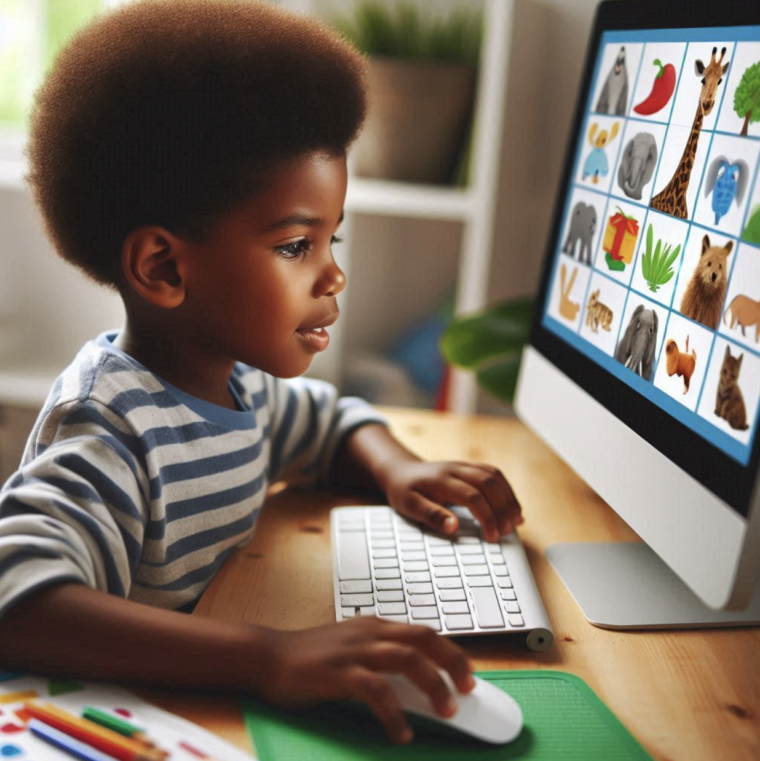DIY Crafts That Support Learning at Home for Kids
(Image created by Copilot)
Finding cost-effective ways to make homeschooling fun and engaging is crucial for frugal living enthusiasts. With a bit of creativity and resourcefulness, parents can turn everyday household items into fun and educational DIY crafts.
These are a few kid-friendly educational crafts that you can easily make using materials you already have at home.
Repurposed Flashcards for Early Literacy
Flashcards are a powerful tool for early literacy, helping children recognize letters, words, and sounds. Crafting these cards at home saves money and adds a personal touch to the learning process.
Consider these creative ways to make flashcards at home:
- Fabric Swatch Word Cards – Old fabric scraps can be turned into tactile word cards by gluing swatches onto cardboard pieces cut from empty cereal boxes.
Write simple words related to the textures (like “soft” for felt) on one side of the card and let kids feel the fabric while reading aloud. This multi-sensory approach helps reinforce vocabulary through touch. - Magazine Picture Flashcards – Gather old magazines and let your child cut out pictures of objects they recognize – these become instant visual aids!
Paste these images onto index cards along with their corresponding words written underneath. Using familiar visuals strengthens word association skills in an engaging manner. - Button Counting Cards – Repurpose buttons lying around your sewing kit by turning them into counting flashcards!
Glue different numbers of buttons onto small pieces of cardboard (1 button on one card, 2 on another). Write numerals next to each set so kids can practice counting as well as number recognition simultaneously. - Combine with Digital Tools – Upgrade your homemade flashcard game with the help of Knowt’s AI-driven PDF summarizer. This tool helps create efficient, custom tailored study aids that reinforce literacy development and more..
Flashcards are just the beginning when it comes to creating fun, and educational crafts from household items. Recycled materials can also teach environmental awareness to young and growing minds.
Recycled Material Crafts for Environmental Awareness
These activities demonstrate how recycling everyday waste can foster creativity and eco-consciousness from a young age.
- Plastic Bottle Planters – Transforming used plastic bottles into planters is a fantastic way to combine gardening with recycling education.
Cut the top off a plastic bottle, decorate it with paint or stickers, then fill it with soil and plant seeds. This project not only gives new life to discarded bottles but also teaches kids about plant growth cycles and responsibility in caring for their mini gardens. - Egg Carton Critters – Old egg cartons are perfect for making adorable animal figures. By cutting out individual cups and painting them, children can create everything from caterpillars to penguins.
Adding googly eyes, pipe cleaners, or fabric scraps enhances these creations while highlighting the value of repurposing common household waste. - Newspaper Seed Pots – Newspapers pile up quickly, and they work great as biodegradable seed pots. Simply roll strips of newspaper around a small jar or glass to form cylindrical pots that hold soil and seeds securely until they’re ready to be planted outdoors.
- Cardboard Box Forts – Help your kids learn history by building castles and forts from Large cardboard boxes. Kids will love decorating these structures with markers, paints, or other craft supplies. Building these epic structures provides hours of entertainment while also learning about recycling.
These activities not only teach children valuable lessons about sustainability but also make education engaging and enjoyable.
Cultivating a Love for Learning Through Creativity
By integrating recycled materials into educational crafts, parents can foster an environment where creativity and learning go hand in hand. As kids see the fun in repurposing everyday items, they develop a deeper appreciation for both the environment and their studies.

